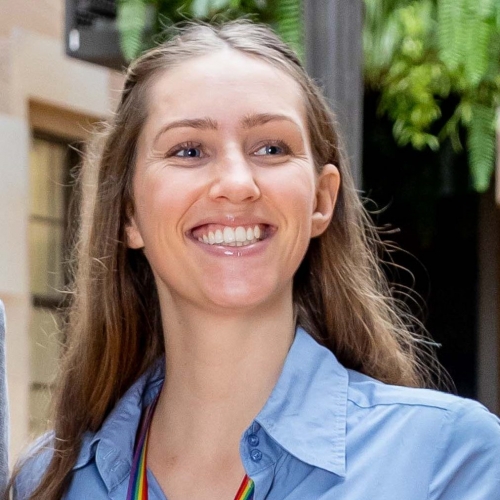
Olivia Jessop
The University of Queensland
Olivia is a PhD student in public health, and her main passions are education and remote health. She volunteers with a Northern Territory organisation trying to promote healthcare education for Indigenous peoples, and works as a casual academic in the School of Maths and Physics at UQ. Her scientific focus is applying microbial genomics in the development of molecular diagnostics for antibiotic-resistant sexually transmitted diseases, and her PhD works to integrate diagnostics with disease surveillance.
Can you give me a quick overview of the type of mathematics you are studying and its potential applications or outcomes
My research project is about developing a way to predict antimicrobial resistance in a bacterium just by looking at it’s genome. This involves identifying which regions are indicative of resistance, coming up with an experimental workflow that can isolate those regions, and then making a bioinformatic pipeline to put it all together. This will be implemented in QLD Health as a surveillance tool, but can also be used to diagnose patients prior to treatment, to ensure they get the right medicine.
How did you get into bioinformatics?
Maths has always been shown to me to be beautiful by my mum, my teachers and my (rather nerdy) friends. I love the application of logic to problem-solving complex issues in the life sciences.
What advice would you give to your younger self or others wanting to studying the mathematical sciences?
I always assumed maths would just be something that followed me everywhere I went, I didn’t realise I had to choose it. I did a science degree assuming there would be a lot of maths in it, and when I realised there wasn’t I found myself naturally gravitating towards bioinformatics instead. My advice is that, as it turns out, if you just follow what you’re interested in (rather than what you think you should do) you’ll probably end up in a field you’ll like.
Tell me about your AMSI BioInfoSummer experience. If a peer asked you if they should attend AMSI BioInfoSummer, how would you describe the conference to them?
Don’t be afraid to sit there and let the information wash over you. I’m very used to being able to grasp concepts immediately, but a lot of the sessions were beyond me. Once I learned to appreciate the speaker for their fascinating knowledge, and not be concerned that I had to know how to replicate it, I found it a lot more enjoyable.
You received an AMSI BioInfoSummer registration scholarship to attend AMSI BioInfoSummer. How important was this in terms of your ability to attend and fully participate in the sessions throughout the week?
Could not have attended without it, I’m very grateful for the support.
What was your main take away from AMSI BioInfoSummer?
I deepened my love for the field, and inspiration of all you can do with bioinformatics.
Where do you want the mathematical sciences to take you? Where do you see yourself in five or ten years’ time?
I want to be knees deep in surveillance and diagnostic genomics, which in this age means engaging thoroughly with bioinformatics. I hope to keep abreast with bioinformatics updates.

